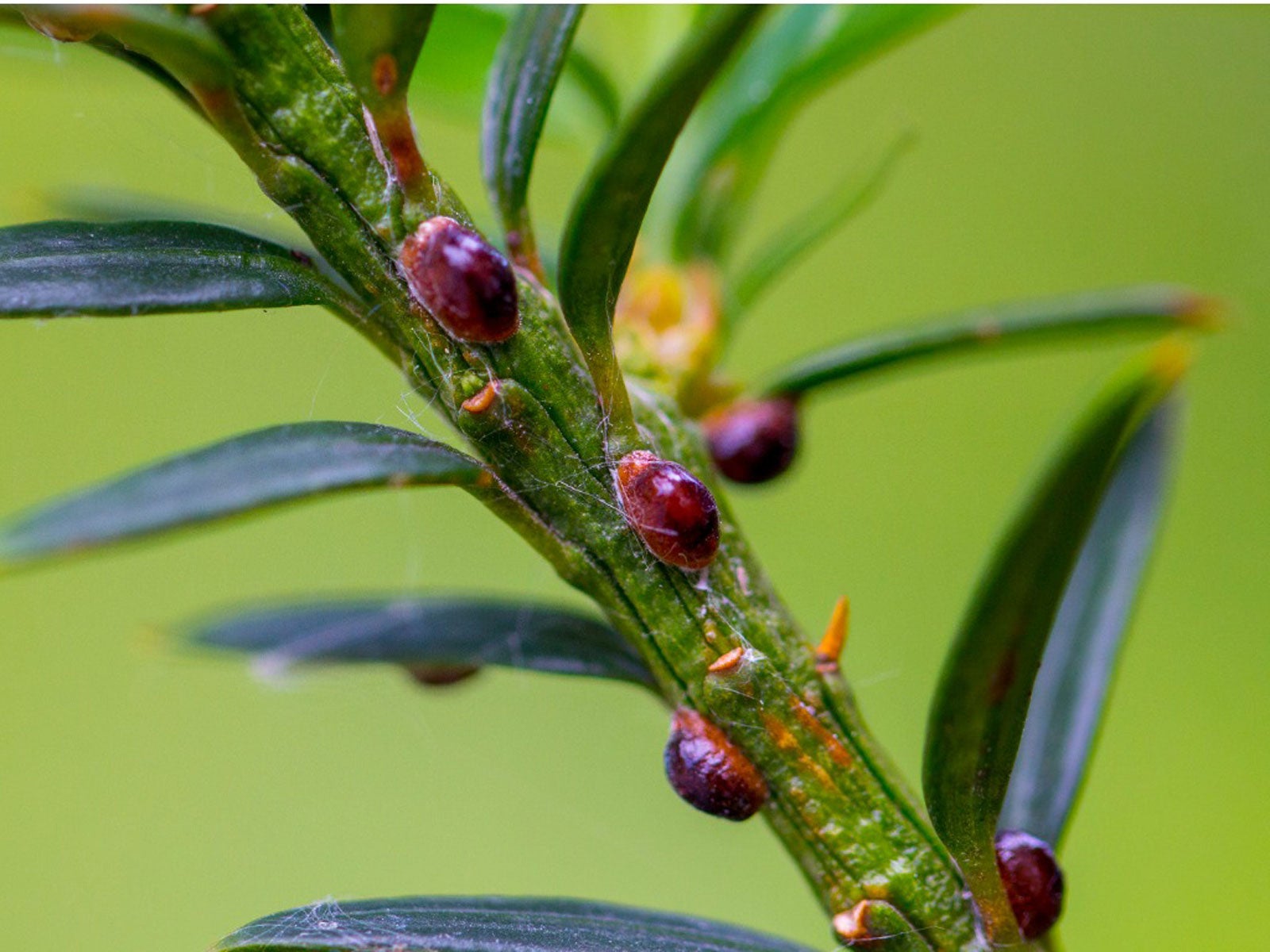Scale Bug - How To Control Plant Scale


Sign up for the Gardening Know How newsletter today and receive a free copy of our e-book "How to Grow Delicious Tomatoes".
You are now subscribed
Your newsletter sign-up was successful
Scale is a problem with many houseplants. Scale insects suck sap from plants, robbing them of essential nutrients. Let's learn more about identifying scale and how to control them.
Identifying Scale Plant Insect
Scale insects thrive in warm, dry environments. The scale bug is small, oval and flat, with a protective tan to brown shell-like covering (scale). Scale generally targets the undersides of leaves and around leaf joints. The scale plant insect consists of three types:
Scales, both armored and soft, are the most destructive. Armored scales are more difficult to control once mature. Soft scale bugs excrete large amounts of honeydew, which encourages the growth of sooty mold, a black-colored fungus that interferes with photosynthesis.
Mealybugs are easier to control. Scales cannot fly so, dispersal depends on the movement of crawlers. Crawlers may be detected by placing double-sticky tape on plant branches.
Scale Insect Control
Scale-damaged plants look withered and sickly. Leaves turn yellow and may drop from the plant. They may also have sticky sap or a black fungus on the leaves and stems. Heavily infested plants produce little new growth. If scale insects are not controlled, death of infested plants is possible.
Scale insects are invasive and will infest other plants, so move infested plants away from healthy ones. Several well-known remedies can be used to eliminate scales from a houseplant. However, there is no easy cure for a scale bug infestation.
One possibility is to pick off or gently scrub them loose from the leaves and stems. Dabbing each scale with an alcohol-soaked cotton swab is another possibility for lightly infested plants. There are also numerous chemical products available for the control of scale bugs. Insecticide sprays, like neem oil, are available at garden centers.
Sign up for the Gardening Know How newsletter today and receive a free copy of our e-book "How to Grow Delicious Tomatoes".
Spray applications should be timed to coincide with the crawler stage, which is most susceptible to insecticides. Insecticides must be applied thoroughly each week for a month or more for the greatest results. For heavy infestations, it is sometimes best to throw away infested plants.
Homemade Control of Plant Scale
Many people prefer to use homemade control of plant scale. Insecticidal soap is a safe and effective alternative to conventional insecticides. You can use bleach-free dishwashing liquid (1 1/2 teaspoons per quart or 7 mL per liter of water) in place of commercial insecticide soaps.
Homemade control of plant scale can also be achieved with oil spray. Mix 2 tablespoons (29.5 mL) of cooking oil and 2 tablespoons (29.5 mL) of baby shampoo in 1 gallon (1 L) of water. This can also be mixed with 1 cup (236.5 mL) of alcohol to help penetrate the insect's shell.
If a fungus is also present, add 2 tablespoons (29.5 mL) of baking soda. Shake well before and during application. Spray every five to seven days as needed, covering both sides of the foliage. Wash the leaves individually with the soap/oil mixture and rinse well.
BEFORE USING ANY HOMEMADE MIX: It should be noted that anytime you use a home mix, you should always test it out on a small portion of the plant first to make sure that it will not harm the plant. Do not spray on hairy or waxy-leaved plants.
Also, avoid using any bleach-based soaps or detergents on plants since this can be harmful to them. In addition, it is important that a home mixture never be applied to any plant on a hot or brightly sunny day, as this will quickly lead to burning of the plant and its ultimate demise.
Note: Chemical control should only be used as a last resort, as organic approaches are safer and more environmentally friendly.

Nikki Tilley has been gardening for nearly three decades. The former Senior Editor and Archivist of Gardening Know How, Nikki has also authored six gardening books.